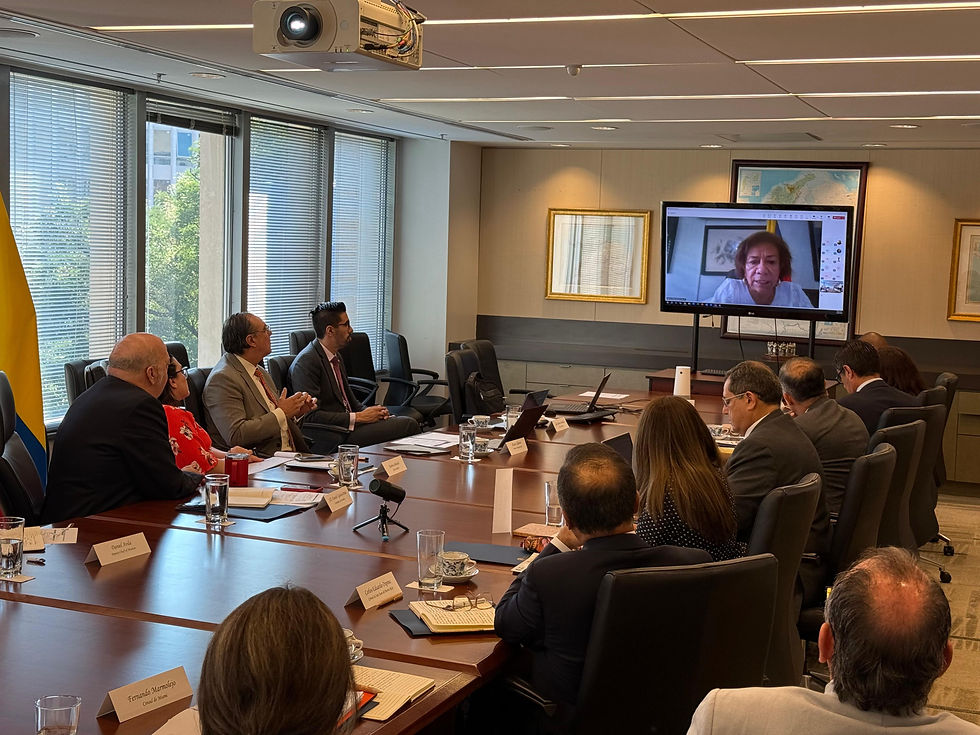Colombian Embassy Leads Consular Engagement Focused on the Diaspora in the U.S.
- Embassy of Colombia

- Jul 28, 2025
- 2 min read
Washington, D.C., July 25, 2025
The Embassy of Colombia in the United States concluded a working session in Washington, D.C., with the twelve Colombian consuls accredited across the country to assess the institutional capacity to respond to the needs of the Colombian diaspora and to address the challenges arising from the current migration landscape.

Presided over by Colombia’s Ambassador to the United States, Daniel García-Peña, the session included the virtual participation of Acting Foreign Minister Yolanda Villavicencio, along with senior officials from the Ministry of Foreign Affairs. The agenda addressed, in a comprehensive manner, the opportunities and challenges stemming from migration dynamics across U.S. territory.
Discussions focused on strengthening consular services, enhancing mechanisms for protection and assistance, and supporting Colombian nationals with irregular migration status. The participants also examined the strategic role of humanitarian flights and voluntary return programs as key components of a rights-based migration policy.
“The protection of Colombians abroad is not merely a consular priority; it is a responsibility of the State. This session reaffirms our commitment to a foreign policy grounded in citizenship, institutional coordination, and a diplomacy that serves the people,” stated Ambassador García-Peña.
The meeting also reviewed the growing demand for consular services, driven by the sustained growth of the Colombian community in the United States, which now exceeds 2.6 million people. In this context, specific measures were defined to optimize operational efficiency and strengthen comprehensive service delivery, guided by principles of quality, coverage, and relevance.
The Ministry of Foreign Affairs presented recent advances in its strategy to reinforce institutional ties with the diaspora, recognizing its influence in key areas such as entrepreneurship, academic development, labor integration, and economic growth.
As part of this interagency effort, the session also included a segment led by María Gaitán, Director of the National Center for Historical Memory, focused on the role of memory, recognition, and social reconstruction in the context of human mobility. This space addressed initiatives aimed at making visible and strengthening the participation of victims of the armed conflict residing abroad.














